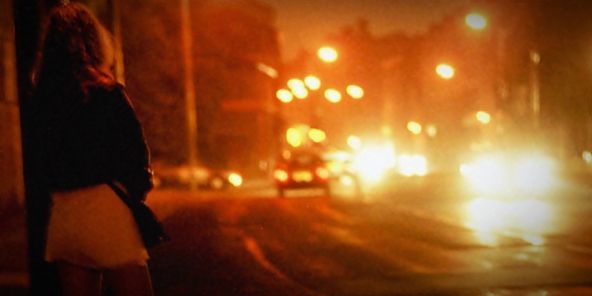Kerb crawlers have been warned they could now lose their driving licences as well as face prosecution if caught soliciting prostitutes.
The Lord Advocate has issued fresh guidance to Scotland’s chief constables in a bid to crack down on prostitution and related offences.
Kerb crawlers are being told they could lose their driving licences under the terms of the Prostitution (Public Places) Scotland Act 2007 (Disqualification from Driving ) Order 2011.
The guidance issued to police comes in two parts, detailing enforcement options for those looking to procure prostitutes and those who are working as prostitutes.
Under Scots law, it is possible for someone aged 18 or over to have sex with another consenting adult in return for payment without an offence being committed.
However, laws passed in 2007 made soliciting by street prostitutes and ”loitering” by prostitutes specific offences.
It is a criminal act to seek to engage the services of a prostitute but the law also states that a kerb crawler can be stripped of their driving licence if the court is satisfied they were driving, or in charge of a motor vehicle, at the time of the offence.
This punishment would be in addition to any other sentence handed down by the court. Kerb crawlers can also be fined up to £1,000.
”Sellers” engaging in on-street prostitution can be prosecuted under Section 46 of The Civic Government (Scotland) Act 1982, which criminalises the act of anyone who loiters or solicits in a public place for the purposes of prostitution.
Solicitor General Lesley Thomson QC said: ”Prostitution represents an insidious form of abuse of women and men.
”The Lord Advocate’s guidelines are aimed at protecting the vulnerable and targeting the abusers.
”Our objectives are to tackle the risk of sexual and physical abuse of women and men and to address the significant nuisance and potential danger for the communities in which prostitution takes place.
”We continually monitor and review our prosecution policies with the police and other members of the criminal justice system.
”This is to ensure they continue to meet the public interest.”
The Stobswell area of Dundee is infamous for the number of prostitutes operating in the area and residents have complained for years about the problem.
A spokeswoman for Tayside Police said: ”Tayside Police wholeheartedly support the Lord Advocates stance in relation to kerb crawlers and prostitution.
”We will take every opportunity to identify and report kerb crawlers in Dundee and continue to work with partner agencies to support and divert those involved.”
Assistant Chief Constable Graham Sinclair, ACPOS lead for public protection said the creation of a single Scottish police force next year will not signal a change in the way the police tackle prostitution.
He said: ”Our approach in tackling prostitution will continue to be considered, flexible and will combine appropriate enforcement with harm reduction, partnership working and education.”
Although it is not illegal to purchase sex in Scotland, that could soon change.
A consultation on a proposal by MSP Rhoda Grant to make it illegal to purchase sex will close next Friday.
Once this consultation is completed, if the bill gains the support of 18 MSPs then it can be brought forward as legislation. It would need to win the support of a parliamentary majority before becoming law.
